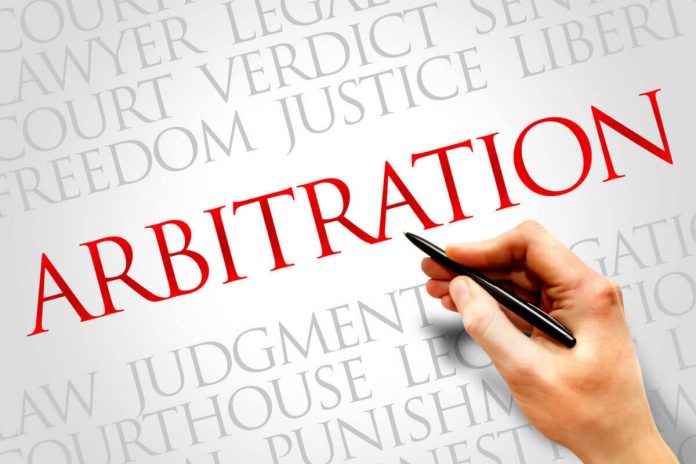This article is written by Iffat Khan, an LL.B. student at the University of Lucknow, pursuing a Diploma in Advanced Contract Drafting, Negotiation and Dispute Resolution from LawSikho. This article deals with the various facets of Section 16 of the Arbitration and Conciliation Act, 1996, with relevant case laws.
It has been published by Rachit Garg.
Table of Contents
Introduction
The terms “arbitrator” and “arbitration tribunal” are interchangeable and refer to the same authority/person or group of persons. The Arbitration and Conciliation Act, 1996 enables the parties referring a dispute for arbitration to have the liberty to appoint a sole arbitrator or a panel of arbitrators.
The number of arbitrators, their qualifications, the venue of arbitration, the jurisdiction and scope of authority of the arbitral tribunal, as well as the procedure for the conduct of arbitral proceedings, are decided by the parties mutually and are the creation of the agreement.
There is no inherent jurisdiction of an arbitral tribunal. Instead, its jurisdiction is derived from the agreement between the parties to decide a particular dispute by way of arbitration. Thus, the jurisdiction of an arbitral tribunal is not derived from any legislation. There is a high level of party autonomy. As a result, the arbitration tribunal enjoys the power to rule on its own jurisdiction, and Section 16 of the Arbitration and Conciliation Act, 1996, envisages the same. After briefly mentioning what types of disputes are arbitrable, the various nuances of Section 16 of the Arbitration and Conciliation Act, 1996, with relevant case laws, have been discussed below.
Nature of disputes that can be referred to arbitration
Some matters are specifically barred from being referred to arbitration. Such matters include the winding up of a company, a declaration of insolvency, matrimonial disputes, testamentary disputes, criminal matters, or matters that are expressly excluded from the scope of arbitration.
A carefully drafted arbitration agreement gives the arbitration tribunal full power to decide matters not only expressed in the contract but also consider angles of tort & equity. Generally speaking, matters involving right in personam may be submitted for arbitration, and matters concerning right in rem cannot be referred for arbitration.
For deciding an issue, the arbitration tribunal uses the law agreed to by the parties for dispute resolution, or in the absence of any such agreement, it applies the law suitable to the circumstances in question.
Section 16 of the Arbitration and Conciliation Act, 1996
The provisions under Section 16 of this Act are framed in accordance with Article 23 of the UNCITRAL Arbitration Rules.
Section 16 (1): Power to decide the jurisdiction
It provides that an arbitration tribunal is competent to rule on its own jurisdiction. The doctrine of Kompetenz-kompetenz or competence de la competence applies to the arbitration tribunal recognizing that the law is competent to rule on its own jurisdiction. This is a way to minimize judicial intervention in the arbitration proceedings. Thus, where a party raises a question as to the jurisdiction of the arbitral tribunal, he shall apply before the tribunal itself, and the tribunal shall either accept or reject such a plea.
Sub-section (1) of Section 16 of the Act also empowers the arbitral tribunal to decide on the objections regarding the existence or validity of the arbitration agreement. The powers under Section 16 (1) are discretionary in nature, as it contains the expression “may rule,” which means that the arbitral tribunal may exercise this power on its own motion or at the request of a party.
Further, for determining the validity of the arbitration agreement following two things are specified:-
(a) Where an arbitration clause forms part of a contract, the said arbitration clause shall be considered an independent agreement, and it becomes self-sustaining. An arbitration clause, while being part of a contract, becomes independent of the other terms of the contract.
(b) Where the arbitration tribunal declares the contract null and void, the arbitration clause contained in that contract does not become invalid by itself.
Thus, the invalidity of the contract shall not automatically render the arbitration agreement invalid.
Section 16 (2): Objection upon the jurisdiction
This sub-section lays down a two-fold provision:
(1) If any party wants to raise an objection regarding the jurisdiction of the arbitration tribunal, such objection shall be raised at the first instance, i.e., before or along with the submission defence statement but not later than that.
(2) A party who appointed or participated in the appointment of an arbitrator is not deprived of the right to raise such an objection.
In the case of UP Rajkija Nirman Nigam Ltd. v. Indure (P) Ltd. (1996), it was observed that a party will not be restricted from raising a plea/objection as to jurisdiction merely because he was a party to the appointment of the arbitrator.
Section 16 (3): Plea on exceeding the scope of authority
This sub-section states that as soon as the matter alleged to be beyond the scope of authority of the arbitration tribunal is raised during the arbitral proceedings, a plea that the arbitration tribunal is exceeding the scope of authority shall be raised.
Section 16 (4): Condonation of delay
Sub-section (4) of Section 16 is to enable the tribunal to condone the delay in raising the plea against jurisdiction under Section 16 (2) as well as for the plea on exceeding the scope of authority by the arbitration tribunal under Section 16 (3). In other words, it empowers the arbitration tribunal to admit a delayed plea if the arbitration tribunal considers that the reason for the delay was justified.
In S.N. Malhotra & Sons. v. Airport Authority of India & Ors (2008), it was observed that if the delay is not justified, the tribunal may reject such a plea.
Section 16 (5): Decision on plea u/s 16 (2) or 16 (3) and further proceedings
This sub-section mandates the arbitration tribunal to decide the plea raised u/s 16 (2) or 16 (3). It further states that if either of the pleas is rejected, the arbitration tribunal should continue with the arbitration proceedings and declare the final award.
- In Odisha State Road Transport v. Arss Bus Terminal Pvt. Ltd. (2021)., Orissa High Court observed that Sec 16(5) lays down that once the arbitration tribunal rejects the challenge to its jurisdiction, it can continue arbitration proceedings and make an award & the aggrieved party has to wait for the final award to challenge the same.
- In Smt. Arati Dhar vs Sri S.K. Dutta (2002), the Court stated that the question of jurisdiction goes to the root of the matter and it should be decided first before submitting the final award. In this case, the court also referred to the case of Konkan Railway Corporation v. Rani Construction (P) Ltd. (2002).
Section 16 (6): Remedy against such an arbitral award
The last sub-section of Section 16 provides a remedy to a party who is aggrieved by an award as per sub-section (5). It gives the aggrieved party an option to file an application in accordance with Section 34 for setting aside the said arbitral award. This provision is available only after the award is made by the tribunal, and the party cannot directly file an appeal based on the rejection of its plea under Sections 16 (2) or 16 (3).
Thus, where the plea under Sections 16(2) or 16(3) is rejected and an arbitral award is passed, parties may challenge the final award, but they cannot appeal the rejection of the plea under Sections 16(2) and 16(3) of the Act. The reason is that such an order of rejection is considered an interim order and not an interim award. However, if the plea under Sections 16(22) or 16(3) is allowed by the arbitral tribunal and the proceedings are terminated, then the parties may prefer an appeal under Section 37 of the Act. Section 37 provides for certain specific orders that are open for appeal.
Relevant case laws related to Section 16 of the Arbitration and Conciliation Act, 1996
Some of the relevant case laws related to Section 16 of the Arbitration and Conciliation Act, 1996, are discussed as follows:
Union of India v. East Coast Boat Builders & Engineers Ltd. (1998)
The Learned Delhi High Court, in this case, noted that if the arbitration tribunal rejects the plea challenging jurisdiction, the Court cannot interfere at that stage. The only remedy available to the party arises after the declaration of the final arbitral award.
M/s Uttam Singh Dugal v. M/s Hindustan Steel Ltd (1981)
In this case, it was held that the finding on the question of jurisdiction is not an interim award as no part of the dispute is decided. Thus, such a finding is not appealable.
S.B.P. & Co vs Patel Engineering Ltd. & Anr (2005)
The Hon’ble Supreme Court of India in this case observed that a remedy available to the party aggrieved is to challenge the award in accordance with Section 34 or Section 37 of the Act. Section 34 comes into play when the application against the jurisdiction is overruled and the arbitration proceedings are completed accordingly, and Section 37 provides for appeal when the application challenging the jurisdiction is allowed.
S.N. Malhotra & Sons. v. Airport Authority of India & Ors. (2008)
This case deals with the waiver of the right to object and is discussed as follows:
Issue of the case
Whether the objection as to the jurisdiction be permitted to be raised for the first time under Section 34 if it was not raised before the arbitrator?
Observation
The legislature intended that the plea under Sections 16 (2) or 16 (3) must be raised at the earliest and it cannot be entertained at a later stage. The discretion of condonation of delay under Section 16 (4) is only available when the reason for such a delay is justified. If the delay is not considered justified by the arbitration tribunal, it may not admit the objection regarding jurisdiction or scope of authority.
Thus, if a party has knowledge of any irregularity and he proceeds with the arbitration without raising an objection within the time limit, he shall be deemed to have waived his right to raise that grievance.
Conclusion
We can conclude that the arbitral tribunal is vested with the power to decide upon its own jurisdiction and scope of authority. The decision of the tribunal in this regard is considered an interim order and not an award; thus, where the said application is allowed, the parties can appeal under Section 37 of the Act; when the plea is rejected, the tribunal is entitled to resume the proceedings, and the aggrieved party has to wait until the announcement of the final award. The legislative intent of expeditious disposal of proceedings can be derived by interpreting Section 5 which prevents judicial authorities from intervening during the course of arbitral proceedings, except as otherwise provided under the Act.
References
- Avtar Singh, Law of Arbitration and Conciliation (11th Edition), EBC.
- https://www.mondaq.com/india/arbitration-dispute-resolution/1028400/unsettled-contours-of-jurisdiction-under-section-16-of-the-arbitration-and-conciliation-act-1996.
 Serato DJ Crack 2025Serato DJ PRO Crack
Serato DJ Crack 2025Serato DJ PRO Crack











 Allow notifications
Allow notifications


